Painting is a kind of fine arts. In the history of the world, whether it is any civilization or country, painting has been a different contribution. In painting, man presents his thoughts without any written form. India, China, Egypt etc. have a long history of painting in countries.
Ancient Indian painting
History of painting in India starts from prehistoric time. The prehistoric period is called the period that has no written description. In prehistoric times, paintings were used in caves. The finest specimen of Indian painting in prehistoric times are the caves of Bhimbetka which are presently in Madhya Pradesh.
Bhimbetka
Bhimbetka caves are in Raisen district of Madhya Pradesh. They were invented by Dr. Vishnu Wakankar in 1957-58. It is UNESCO World Heritage Site and has more than 750 stone caves here. Their wall is paintings of prehistoric times. The oldest paintings here are 30,000 years old. Here is the Para Pyaan Kalay, the Middle Stone Age, the Neolithic period, the Tamralakas, ancient and medieval paintings. The picture of deer, rhinoceros, lion is important in Pura stone carpet paintings. Middle stone carving paintings have paintings like hunting, tribal warfare. After this, the paintings like Yaksha, Vanadev-Onedevi, Sky Chariot are prominent in the later paintings.
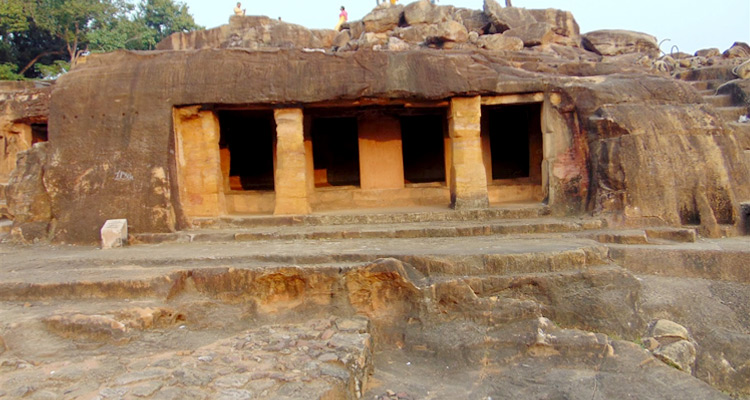
Painting of Harappan was very important in the civilization. The excogitating painting on seals during excavation from the Harappan carpet sites is an outstanding example. On the seals of Harappa, elephants, bulls, horses, etc. are inscribed. Pashupatinath's seal has also been obtained from here.
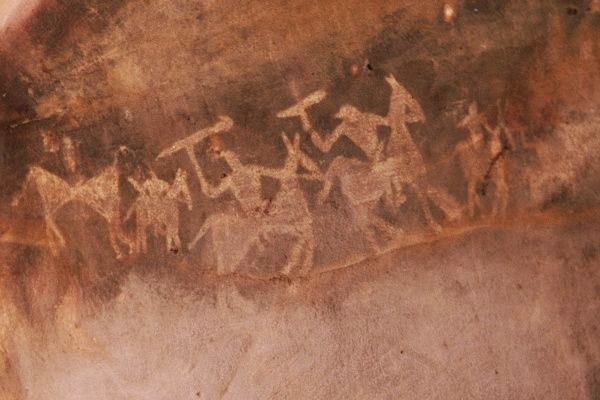
In ancient India, painting has contributed a lot to the Hindus, Buddhists and Jains in all three religions. In the Ramayana, Mahabharata, the presentation of painting is also seen. Painting has had a special effect on the literature of ancient India. Painting is described in Vinay Pitta of Buddhist religion. Movies have also been described in the play called Pradarakshas, ??which was written in the fifth century.
Shadeang of painting
In the third century Vatsyayana composed the Kamasutra. In this, he has described six parts of painting. These six limbs are as follows:
(1) variation
(2) proof
(3) bhav
(4) charitable planning
(5) analogy scheme (6)
Ajanta caves
Ajanta caves are in Aurangabad district of Maharashtra. They were discovered in 1819. In 1983, UNESCO declared World Heritage Sites. These are stone-cut caves. It took almost a thousand years to build them. The early work of the construction of caves took place in the times of pilgrimage. Later Ajanta caves were built in the Wakataka period. There is a painting of the dying princess in the 16th cave. The 17th cave was developed by Harishan and in it is the painting related to the life of Gautam Buddha.
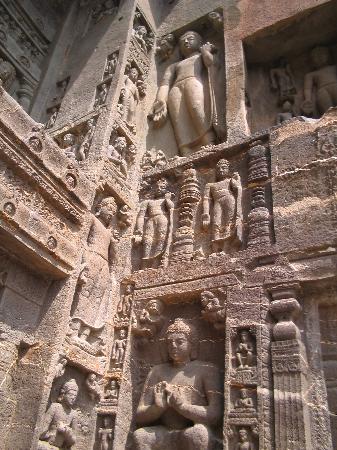
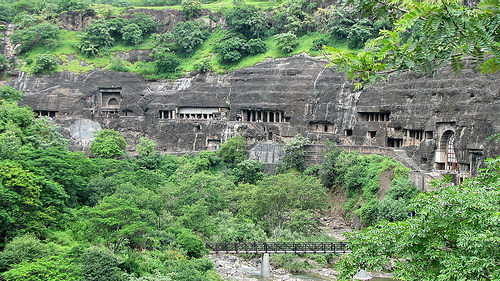
Caves of Ellora
Caves of Ellora are also in Aurangabad district of Maharashtra state. These are caves related to Buddhist, Hindu and Jainism. Here is a famous Kailash temple which was built by King Krishna Krishna of the nation.
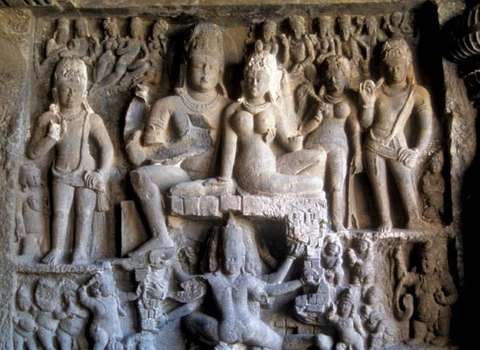
Tiger Caves
Caves of Tiger are related to Buddhism. This is in Dhar district of Madhya Pradesh. This is an excellent example of ancient Indian painting. Their development took place from the 5th to the sixth century.
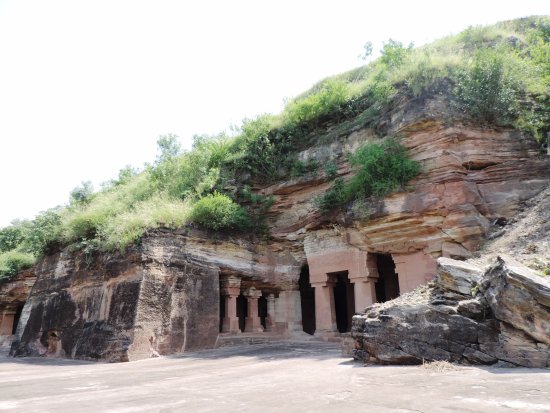
Painting of other ancient Indian caves - The history of painting in caves in India is very ancient. In addition to Ajanta, Ellora, Tiger Caves, Coomutipathy, Muddaiappu, Cavekayoor, Cemetery in the hills of Nilgiris in Tamilnadu, Bhimbeta is old as Etiini. Hareguda near Badami in Karnataka has also been painted in caves. Apart from this, the art of Yogimatha is famous in Odisha's Gaudahandi.
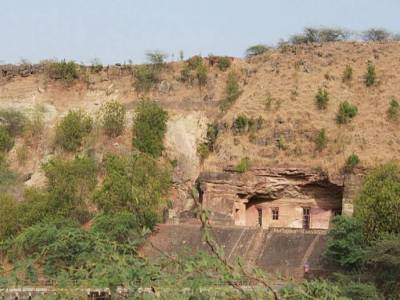
In the seventh century AD, chapters titled 'Chitatasutra' is related to painting in Vaishnavartarma Purana.
Medieval Indian painting
Painting of eastern India flourished in the 10th century. It has the effect of painting related to Buddhism. Its main examples can be seen in the paintings of the Tibetan shrines of Myanmar Plantations. Western Indian painting developed as a miniature painting and it was a very beautiful painting. It was primarily related to Hindu and Jainism.
In the Sultanate also the painting of the mosque can be seen in the mosque. In this, the effect of Persian culture can be seen. This effect also took place on the Hindu painting of India. The Bahamani empire, the Vijayanagar empire and the Rajputs of Rajasthan also encouraged painting.
The Mughal painting style was developed by a mix of Persian and Hindu painting. Akbar encouraged painting. Apart from this Mughal rulers also encouraged painting.
Jahangir Time - The time of jahangir is called the golden age of medieval painting. The painters like Mansoor, Bishan Das and Manohar were decorated in the court of Jahangir. Jahangir could differentiate the creations produced by different painters in a painting.
Modern Indian painting
The influence of Western culture is found in modern Indian painting. The oil paintings of Goddess Saraswati, Urvashi-Purvarawa, Jatayu-Dah, created by Raja Ravi Varma are still very famous.
Main periods of modern times
The main paintings in modern times are as follows
- Bharat Mata - Abineindranath Tagore
- Shakuntala - Raja Ravi Verma
- Bapu - Nandlal Bose
- Point-s-h raza
- Urvashi-Purvarva - Raja Ravi Verma
- Jatayu Dao - Raja Ravi Verma
- Goddess Saraswati - Raja Ravi Verma
- Parasurama, Brahmaji, Sri Ram - Aniruddha Sainath
Academy of Fine Arts
In the modern era, the development of technology has not encouraged painting with the development, yet many painting academies and institutions are doing it in this area. The Academy of Fine Arts is designed for the development of fine arts in India. Lalit Kala Akademi has been a contributor to the promotion of painting. It was established on August 5, 1954.